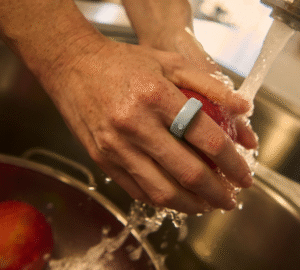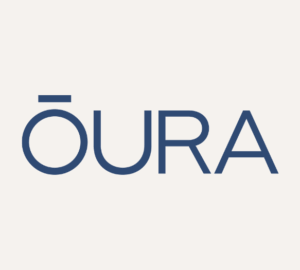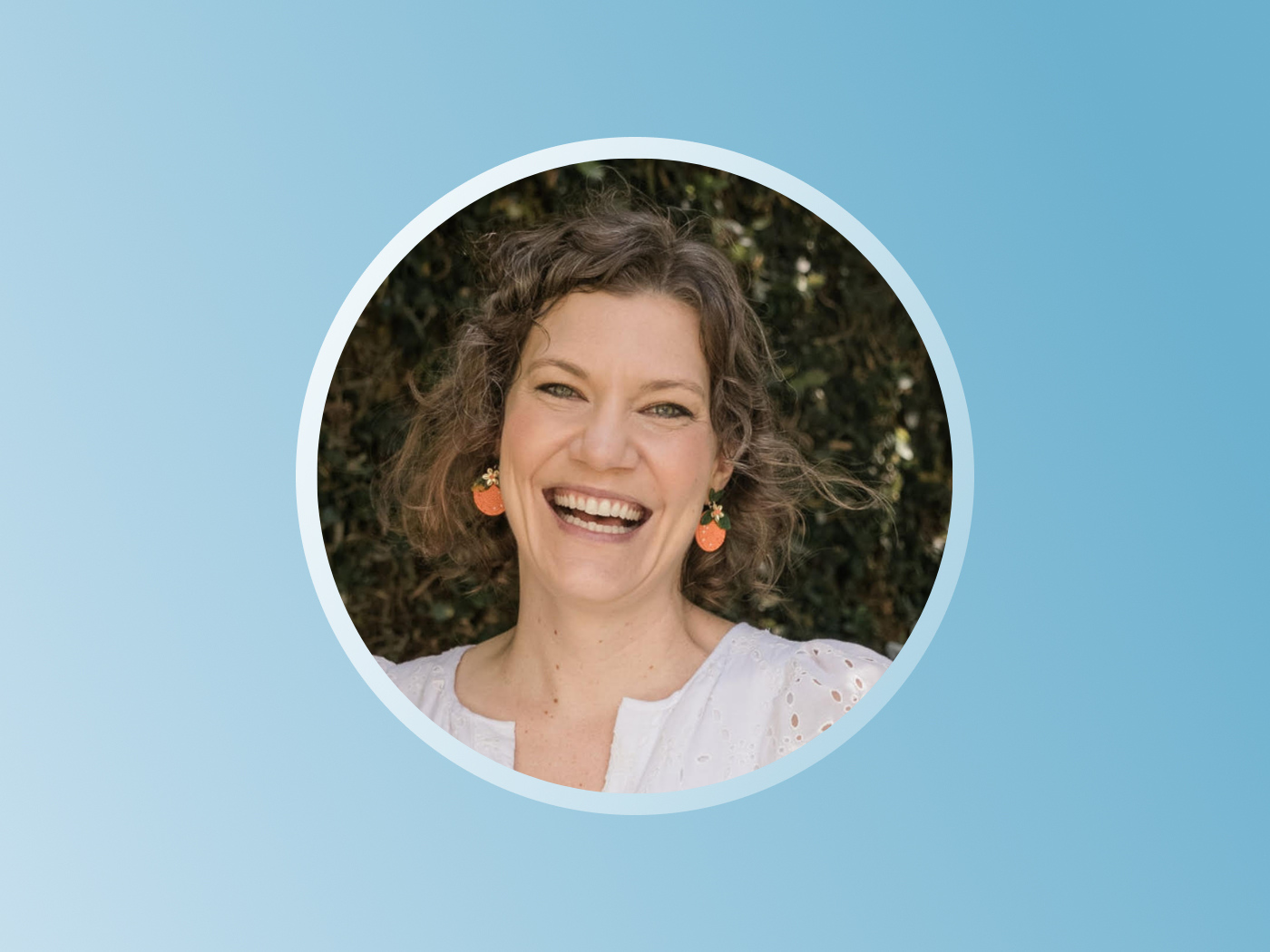Dr. Christine Noa Sterling, a board-certified OB-GYN and mom of three, cares deeply about supporting women through one of life’s most important transitions: motherhood. After a decade working as a clinical OB-GYN, she founded Sterling Parents, a digital membership designed to provide education and support for women as they navigate pregnancy, birth, and postpartum.
We’re thrilled that Sterling is a member of Oura’s medical advisory board. She has an evident passion for women’s health, and she’ll play a key role in Oura’s ongoing commitment to advancing this field.
We spoke with Sterling to learn more about her background, mission, and how she uses Oura in her daily life and work.
What brought you to Oura?
I’m a big believer that information and education can empower you to make better decisions about your health. What I love about Oura is that it puts the data in your hands.
Having data and daily scores at your fingertips that give you an insight into how your body is doing can be deeply validating. Especially for women, this kind of access to information can help you take better care of yourself.
Throughout my career, I have noticed that women tend to gaslight themselves when it comes to how they feel. They might think they’re being lazy and push on, but in reality, they’re sleep-deprived and should get some rest. I believe that everyone can benefit from being a little more kind and gentle with themselves.
READ MORE: Learn About Oura’s Compassionate Approach to Sleep
What have you learned about your health or habits since using Oura?
I have always known that sleep is vital, but implementing that knowledge can be difficult. I consider myself a pretty terrible sleeper – I have three children, and I can almost guarantee that I’ll be woken up throughout the night.
I used to get up in the morning as soon as I woke up, even if it was early. I thought I wouldn’t be able to fall back asleep, or if I did, it wouldn’t be deep sleep. Now, with the breakdown of my sleep stages on Oura, I can see that I’m in light or REM sleep in the morning. And contrary to my prior assumption, these are valuable sleep stages. So now, when I wake up early, I try to go back to sleep.
I also used to overestimate the amount of sleep I got. Now having the hard data, I prioritize sleep more. Oura has taught me to go to sleep earlier so that I can maximize my time asleep and account for any interruptions. I closely follow the Body Clock feature, and when I get the bedtime guidance notification that it’s time to start winding down, I listen!
| Member Tip: After using Oura for 90 days, you’ll learn your chronotype. You’ll get an ideal bedtime and wake time (your Body Clock), helping you create even better sleep habits. |
READ MORE: Find Your Ideal Bedtime With Oura
Tell us about your background.
I have been an OB-GYN since 2012. In 2019, I left my clinical practice to focus solely on Sterling Parents, a membership that works directly with women to educate and guide them through motherhood.
Once I became a mother, my passion for this field of medicine really skyrocketed. I personally noticed an increase in my stress and mental load after becoming a parent, and this is a pattern I see across the board with my patients and friends. I use my own personal and professional experience to find ways to support new mothers with holistic support.
I have a fundamental belief that our children are our soulmates. When women become pregnant, they start their own self-development journey to become the parent that their child needs them to be. I believe all women are capable of this, but they need the right support to become the best parent to their child.
What are some common obstacles that women face when becoming a first-time parent?
New mothers experience an increase in stress and anxiety, and it tends to be because of uncertain circumstances that are outside their control. Meanwhile, they care so much about trying to do their best that it can become overwhelming. When these women have a question or concern, they tend to go down a rabbit hole of searching for answers to try and reassure themselves. But this can only exacerbate their anxiety.
| Member Tip: Track your stress using Oura’s new Daytime Stress feature, to see when your physiological stress spikes and what causes it. This can motivate you to carve out more time for recovery during stressful periods. |
There are two things that more women need: 1) access to high-quality information, and 2) emotional support and encouragement to use their own intuition to evaluate that information and make the best decisions for themselves.
READ MORE: Sleep 101 for New Parents
What are some benefits of Oura for women?
For cycle tracking, Oura can be particularly useful. Whether it’s used with Natural Cycles or alone, it can be a great resource.
Tracking your cycle can be profound. Knowing what’s going on in your body can help you work with – rather than against – your cycle. Overall, Oura can help women reduce their stress and help them feel at ease in their own bodies.
You can also use Oura to correlate your cycle with your habits and use this information to adjust your day-to-day decisions. Instead of waiting to get your labs done once a year, now you have technology that can give you daily insights into your health.
| Member Spotlight: Oura member Nikki M. started using Oura with Natural Cycles after removing her IUD, which gave her a deeper understanding of her body and her cycle. She used Cycle Insights to try cycle syncing, adjusting her workouts in line with her cycle phase. |
READ MORE: Cycle Syncing 101: Support Your Sleep, Mood, and Energy Throughout Your Cycle
Rapid-Fire Round
Must-do morning ritual?
Meditation. I’m Jewish, so I also do my daily prayers.
Bedtime routine for good sleep?
I enjoy reading before bed—mostly fiction.
One bad habit Oura’s helped you break?
Oura has helped me see how much screens impact my sleep. Now, I put my phone away before bed and read so I can wind down.
Mid-afternoon energy booster?
A cup of Earl Grey tea!
Surprising side interest or hobby?
I love reading romance novels.











